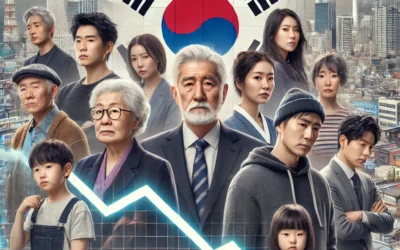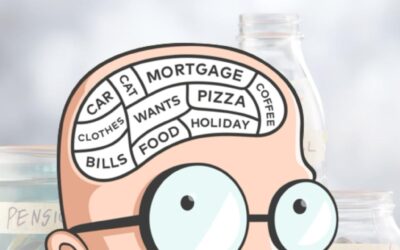The 180 Pulse
With thought-provoking articles covering varied domains, 180DC SRCC aims to create student leaders through a holistic learning experience.
Read to take a deep dive into looking at world issues from the eyes of a consultant.
BUSINESS AND FINANCE
The Rise of Online Betting in India: A Digital Gold Rush
In the digital age, online betting is booming in India, with the market projected to reach $1.97 billion in 2024. This explosive growth, rooted in historical practices, is happening amidst a legal gray area with no clear national laws. As millions bet from their homes, the lack of regulation fuels a vast illegal network, impacting tax revenues and fostering underground economies. The societal implications are profound, with rising concerns over addiction, corruption, and cultural opposition. India stands at a crossroads, facing urgent questions about how to manage this burgeoning industry while addressing its deep-seated challenges. Check out Manvay Rawat’s article as he discusses the betting industry in India.
Wealth Tech Consulting: The Future of Financial Advisory
Fueled by fintech’s rise, wealth tech consulting is a rapidly growing field. These consultants act as a bridge, guiding traditional financial institutions to adopt cutting-edge tech like robo-advisors and AI. This not only enhances client experiences but also streamlines operations, keeping firms competitive. Wealth tech consultants are architects of the future, shaping how finance leverages technology to reshape wealth management. Check out Harish Kumar’s detailed exploration of the wealth-tech consulting and its promising future.
From E-tail to Retail: The Omnichannel Shopping Experience
The retail landscape undergoes a seismic shift. E-commerce (e-tail) has shattered the walls of the traditional shopping experience. Omnichannel retail, a revolutionary approach, orchestrates a symphony of online and offline experiences, forging a singular, unified customer journey.
Explore the ascendance of omnichannel and the potent benefits it bestows upon both businesses and consumers. Discover how retailers are rewriting the retail script, crafting a world where convenience waltzes with immersive experiences, and every touchpoint becomes a battleground for customer loyalty.
Check out Gunika Kakkar’s article as she delves into the intricacies if ever-evolving shopping landscape.
SCIENCE AND TECHNOLOGY
Elon Musk’s startup on Neuralink
Brain-Computer Interface: is the world ready for it?
Would you allow someone to drill a hole in your skull to implant a product like the Neuralink, assuming it was safe and worked as advertised?
How much benefit would you need from a device like this to justify the intrusion into your nervous system?
We won’t know for sure until we have to make the decision, but it’s a good idea to start thinking about it now because that day is approaching soon.
5G: A DIGITAL REVOLUTION?
The fifth-generation broadband technology would not just transform the lives of millions but also boost India’s economic growth. Given the rather stop-start journey of 5G in India which is now gathering pace fervently, this breakthrough in the form of mobile connectivity 5G technology will enable a more uniform user experience and the emergence of new services, applications and experiences, thus connecting the world at a breakneck pace.
How has been India’s tryst with 5G so far? Are we ready for 5G technology and 5G network in India? What does it has in store for the future of India?
Head on to the latest article in 180Pulse – “5G- A Digital Revolution?”, where Mehak Goyal delves deeper into the 5G technology in India and provides the answers to all the questions mentioned above.
Virtual Fashion: To wear, or not to wear
In a society recently ravaged by a pandemic, networking over the internet appears to be a routine chore. One may converse from the comfort of their own home using innovative programs such as the Metaverse. Digital clothing is something that enhances these encounters. Clothes no longer exist physically in this fashion-meets-digital scenario, instead, they are chosen from a virtual depiction created using 3D software and AR-based computer technology. But what is the future of this technology? Will its popularity fizz out?
Read out as Tanvi Vaidhyanathan delves deeper into the nuances of virtual fashion and provides with an interesting insight of this industry.
ECONOMIC AND PUBLIC POLICY
South Korea’s Demographic Challenge: A Declining Nation
South Korea is grappling with a demographic crisis that could reshape its future in unprecedented ways. With one of the world’s lowest fertility rates and an aging population, the nation faces challenges that threaten its economic growth, workforce sustainability, and social security systems. By 2025, South Korea will be classified as a “super-aged society,” with over 20% of its population above 65 years old, a figure expected to rise to 40% by 2050. As these shifts unfold, they highlight the urgent need for systemic change. Moreover, as other developed nations edge closer to similar scenarios, the lessons from South Korea’s response are becoming increasingly relevant for the global stage.
Check out this article by Pradeep Arvin Cholagar as he explores the root causes of South Korea’s demographic decline, its far-reaching implications, and the multifaceted solutions required to address the crisis. Can South Korea reverse this alarming trend and secure its future?
When Oil Burns, Gold Glitters: How the Israel-Iran Conflict is Shaping Global Gold Markets
Gold has always been a timeless asset, shining brightest when the world is in turmoil. In a world where political tensions rise, currencies falter and borders blur, gold stands as a steadfast emblem of stability. Its domination is visible across the globe- even amidst escalating tensions between Israel and Iran, gold’s appeal has only strengthened while countries like India, Russia, and China increase their gold reserves, preparing to challenge the dollar’s dominance. With geopolitical instability on the rise, from the Middle East to Eastern Europe, the question gleaming brighter than ever is: can gold hold its crown as the ultimate financial haven?
Check out Angel Gupta’s article as she breaks down how gold is shaping global financial strategies and what it implies for the future of currency and investments.
Has a decade of Make-in-India failed?
The audacious promise of ‘Make in India’ aimed to lead India into an industrial renaissance and rebirth it as a global manufacturing hub. Despite attracting record levels of FDI and transforming the industrial fabric, the policy faces tough challenges in its pursuit of glory. As India dreams of becoming the cradle of the world’s modern industry, the next decade will determine whether ‘Make in India’ truly roars or fades into a missed opportunity. The world is watching. The stakes couldn’t be higher.
Check out Parv Jain’s article as he breaks down and analyses this revolutionary policy.
Philosophy and Psychology
A Good Deal: The Theatrics of Mental Accounting
Imagine you’re walking down the street, and you happen to find a ₹2000 note lying on the sidewalk. You’ve been trying to save some money to put towards buying a new car in the future. Today, however, you take your newfound ₹2000 and put it towards an expensive dinner. You tell yourself that this money isn’t “car money” — this is a one-off, special occasion, so why not treat yourself to a nice evening out?
Why do we treat some money differently? Why do we think less about some purchases than others? Consumers, although deemed to be rational, are economic elements that more often than not are ruled by cognitive errors.
Because of mental accounting, we often behave illogically when it comes to money. Read on as Suhani Jain breaks down how marketers use this loophole to their advantage, convincing customers into the Theatrics of a ‘Good Deal’.
Generation Gaps in Workspace: Threat or an Opportunity?
In spite of attempts made to bridge today’s generation gaps between people of different age groups, few instances of “Generation wars” do pop up in some form or the other. Apart from social and cultural interactions, the workplace is where people belonging to almost all generations find themselves interacting on an everyday basis.
But is having a diverse set of workforce always necessarily a threat to organizational efficiency? When we frequently point out issues such as communication barriers, differences in working style and contrasting beliefs, why do we often overlook the benefits of intergenerational interactions?
Head to the latest article on 180 Pulse – “Generation Gaps in Workspace: Threat or an Opportunity?”, where Subhashini K analyses how generation barriers can be turned into effective tools to propel organizational growth.
Bounded Rationality in Decision Making
When we think of all the decisions that we have to make daily, trying to make the optimal decision is often not possible. Our cognitive thinking abilities and self control across diverse activities are ‘bounded’ because of various limitations. The implications of these limitations range from having misconceptions about certain people in our lives to speculative bubbles in various asset classes.
What deviates our decisions from what is considered to be desirable or logical? How do we make the right decision and outsmart our cognitive biases?
Check out Ananya Taneja’s article on ‘Bounded Rationality in Decision Making’ that delves into these questions through the realm of Behavioural Economics.












